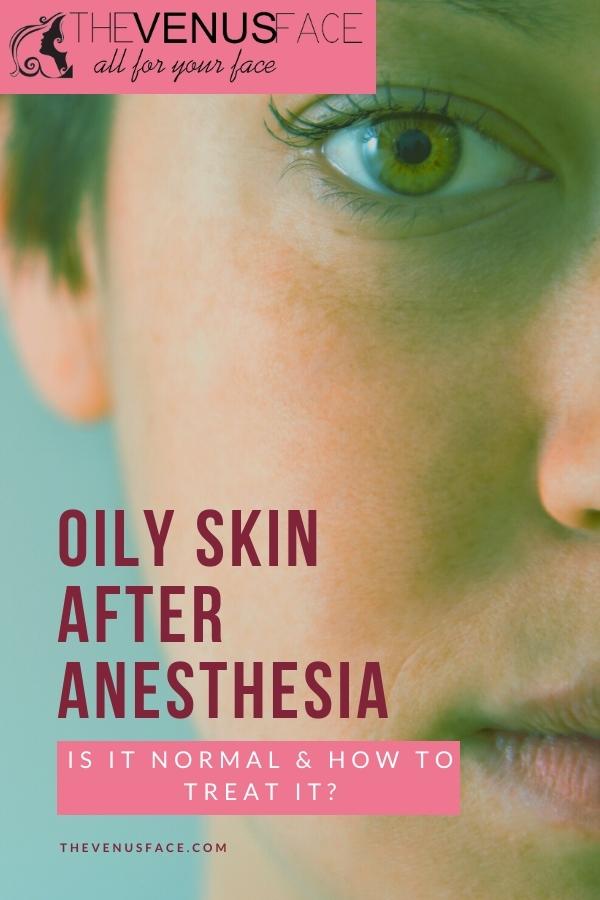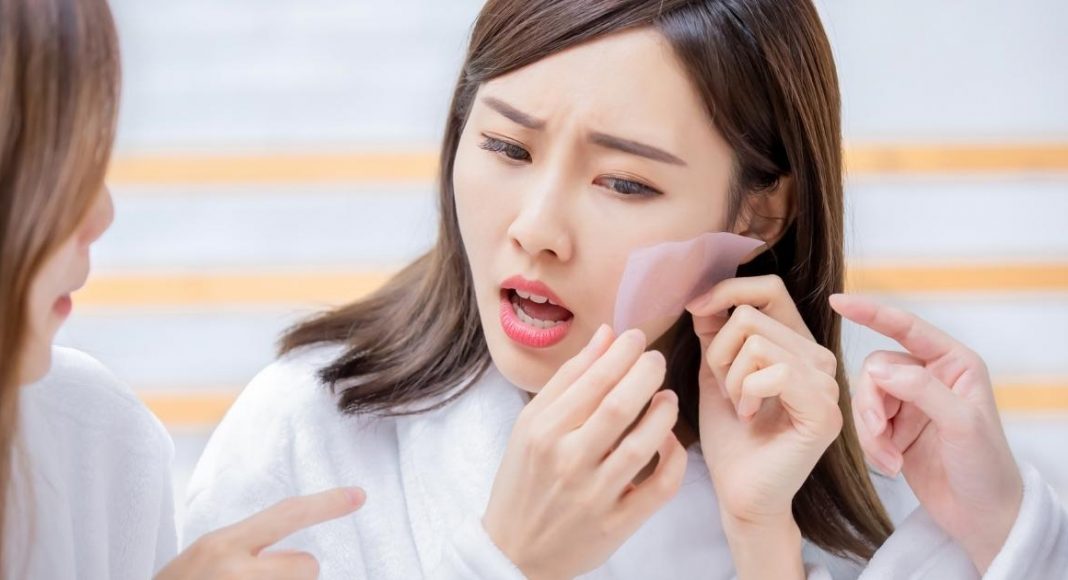Anesthesia is a powerful medical technique used to induce loss of sensation in different parts of the body. It reduces or completely removes feeling from an area, thus numbing the pain and anxiety associated with surgery. Anesthesia is generally safe when administered by a trained healthcare professional; however, it is still possible to experience negative side effects after general anesthesia, for example, oily skin after anesthesia.

Can anesthesia cause oily skin?
Yes, it can. The use of anesthesia can cause the sebaceous glands in the skin to be hyperactive, meaning that they produce more oil than usual.
Oily skin after anesthesia is not dangerous, but it can be uncomfortable and embarrassing because people often see the greasiness of your face as a sign of over-eating or uncontrolled weight gain. Sometimes, the skin may even break out with acne. It’s important to understand what factors can contribute to oily skin after anesthesia so that you have an idea of how to manage it.
How to treat oily skin caused by anesthesia?
Usually, this condition should disappear without any long-term effects within a couple of weeks. It’s hard to tell how long this may take because it depends on the type of anesthesia you were administered and your own body’s response to the anesthesia.
However, if your skin remains oily beyond that time frame, here are some tips to help you manage it:
Rinse with cold water
Coldwater will help reduce the oil and grease on your skin and create an astringent effect that tightens up your pores as well. Rinse off immediately after leaving the doctor’s office to get rid of all those annoying fatty deposits. Don’t apply hot water as this will open up the pores and actually encourage more oil production.
Apply a toner/astringent
Toner or astringent is great at removing excess dirt and other particles from your face, so it helps reduce clogged pores as well. It also tightens up enlarged pores and remove any residual chemicals left over
Use blotting paper
Blotting paper can be used to absorb excess oil. They are usually disposable so you don’t have to worry about rinsing them off or anything cumbersome like that.
More: Best Blotting Papers for Oily Skin That Keep Your Face Clean
Other tips
Moisturize your face with oil-free moisturizers. Avoid any products with oils because they will exacerbate the problem.
Use makeup sparingly and only on special occasions; When you do want to use it though, make sure that you choose water-based varieties so the greasiness of your skin doesn’t affect how well it goes on.
Do not scrub your face dry after washing it as this can irritate the sebaceous glands even more and worsen your condition. Instead, pat yourself dry with a soft towel.
More: Best bronzers for oily skin
Why is my skin so oily after surgery?
Mainly because of the use of anesthesia and medical drugs that activate the release of several hormones that initiate the process of trans-epidermal water loss (TEWL) and sebum secretion.
The fatty glands under your skin have a tendency to be more oily than usual after surgery, so proper hydration and moisturization are needed to help treat it.
Excess moisture on the skin caused by TEWL will facilitate sebum production, which leads to excessive oil accumulation on your face. This can also cause acne outbreaks as well as further dryness.
More: Best blushes for oily skin
Is it normal to break out after anesthesia?
Yes, it is. Especially breakouts after cosmetic surgery are quite typical. So, you shouldn’t worry too much because this condition is temporary and should resolve in a few weeks.
If breaking out makes you feel self-conscious or uncomfortable, then you can read this post to learn how to combat oily skin.
Can anesthesia cause other skin problems?
Yes, it can. Many reports show that the side effects of anesthesia are vast and varied. For instance, while some had dry skin after surgery, others experienced extreme oiliness of the face.
There are even reports of rash and hives on the skin. In this case, you should contact your doctor for treatment.
Final thought
Oily skin after general anesthesia is usually the result of several factors such as hormonal changes as well as wearing glasses or after waking up. Usually, this side effect is not permanent and will go away a couple of weeks after the surgery.
In case you have oily skin that just won’t go away no matter what you do, then you should see a specialist for proper diagnosis and treatment options. If your skin is oily as a result of taking certain medications as part of your anesthesia care, then talk to your doctor about trying different ones that may not cause this side effect.
More: Top professional microcurrent machines for estheticians.


